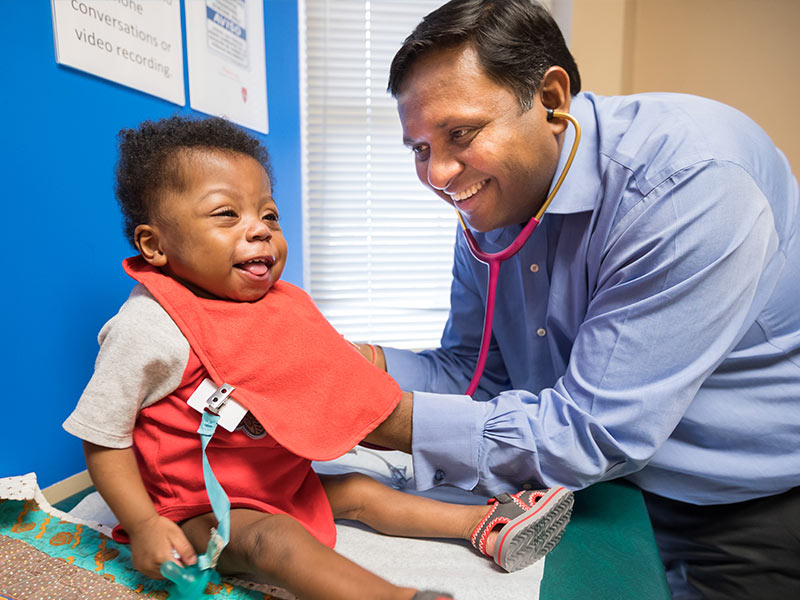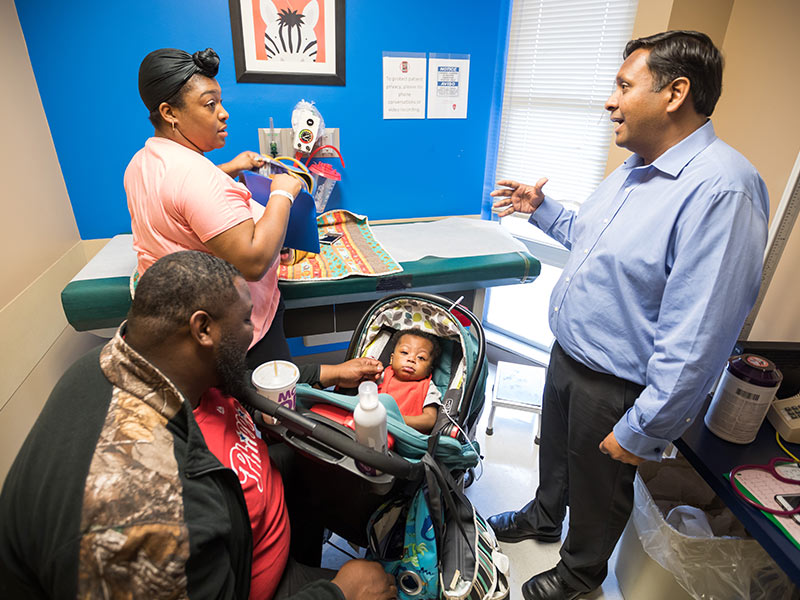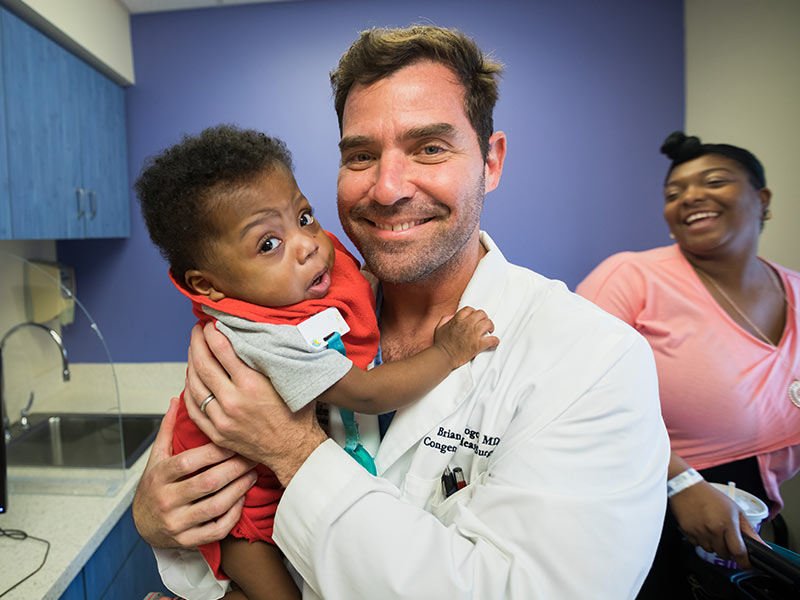State’s youngest heart recipient 'looking better and better' one year later

Jharad Faust smiled as Dr. Brian Kogon held him, but not long after he was handed to Children’s of Mississippi’s head of pediatric cardiothoracic surgery, Jharad was ready to be on the move again.
“He is very active,” said his mother, Candace, “always playing.”
These days, she and little Jharad’s dad, Jharad Sr., enjoy watching their youngest, nicknamed Tonto, and sister Jhardan, 5, play in their Meadville home.
Jharad, at 15 months, has just passed the one-year anniversary of his heart transplant. He made history in 2017 for being the youngest heart transplant patient ever at the University of Mississippi Medical Center, and for his surgery being one of four pediatric heart transplant patients in 2017, a Children’s Heart Center record.
“When I came to Children’s of Mississippi (in early 2017), we had three children on the list for heart transplant, and then gained one more,” said Dr. Brian Kogon, chief of pediatric cardiothoracic surgery at Batson Children’s Hospital. “We performed all those surgeries last year.”

So far, in 2018, one additional pediatric heart transplant has been performed. “Currently, all of the children that have been on the heart transplant list have been transplanted and are doing well,” said Kogon.
Jharad was born Nov. 28, 2016, with a critical congenital heart defect, pulmonary atresia with intact ventricular septum. With this defect, very little blood flows into or out of the right ventricle, which doesn’t fully develop and remains very small. According to U.S. Centers for Disease Control and Prevention research, about one out of every 10,000 babies is born with some type of pulmonary atresia.
“My pregnancy seemed fine,” Candace said. “We didn’t find out about Jharad’s heart until after he was born.”
A low heart rate and ashen color told physicians that something was wrong.
A heart with an under-developed right ventricle will have problems pumping blood to the lungs and the rest of the body. In addition, this type of defect is associated with blockages to blood flow in the coronary arteries, leading to impaired heart function.
Adults who have blockages in arteries have heart attacks, and this is what was also happening in little Jharad.
Jharad was transferred from the hospital where he was born to UMMC, where his cardiologist, Dr. Avichal Aggarwal, medical director of the pediatric heart transplant program, thought surgery could repair his defect. From that point, the outcome would depend very much on the status of the baby’s coronary arteries.
“There’s a huge spectrum of how mild or severe the baby’s coronary blockages are,” said Kogon, “and Jharad’s were awful.”
The first surgery was a shunt to provide Jharad reliable blood flow to the lungs and required him to be on a breathing machine. After the first surgery, other organs aside from the heart were also starting to fail. Aggarwal said Jharad’s lungs were not strong enough for him to breathe on his own and he was developing a decline in kidney function too.
“Jharad,” said Kogon, “was living on the edge.”
Changes in Jharad’s EKGs prompted Kogon to place the baby on the United Network for Organ Sharing’s list for a heart transplant. Donor hearts are hard to come by for infants, Kogon said, with the wait times being, on average, four to five months to find a match in size as well as other factors such as blood type.
The match came about a month and a half later, on Feb. 27. “It was on the small side of acceptable,” said Kogon, “but it was acceptable.”
Jharad’s fight wasn’t quite over, though.
“Hearts were not made to be removed from one person, put in an ice chest and flown around the country to be put into another person,” said Kogon. “Jharad’s new heart worked well. Until it stopped.”
“The surgeons worked quickly to put Jharad back on the cardiopulmonary bypass machine,” said Aggarwal. The machine supported his circulation for the next several days, giving his new heart a chance to rest and recover.

Since then, it took over its job of pumping Jharad’s blood beautifully, and it’s been doing so ever since. He got to come home to Meadville for the first time in June 2017
“Jharad has had multiple hospital stays since his heart transplant,” said Aggarwal, “but none of them have been related to the transplant, and he has had no problems with his body rejecting the new heart.”
Reaching the one-year milestone after surgery, for a weakened and critically-ill baby faced with recovering from a heart transplant, is monumental, Kogon said.
“He’s looking better and better each time we see him,” said Aggarwal.
Jharad couldn’t have done it without his mother and the rest of the Faust family, Aggarwal said. “She’s worked so hard. Jharad, when he first went home, was on medication that had to be given every three hours, day and night. She made sure he received every dose.”
“Candace is so calm,” Kogon said. “She goes with the flow. Once you’ve gone through everything she has, everything else looks minor.”
During Jharad’s most recent check-up, photos were snapped with his doctors, just like it was a reunion. “It’s like a family gathering,” said Candace, “because Batson Children’s Hospital and these doctors and nurses are our family now.”


